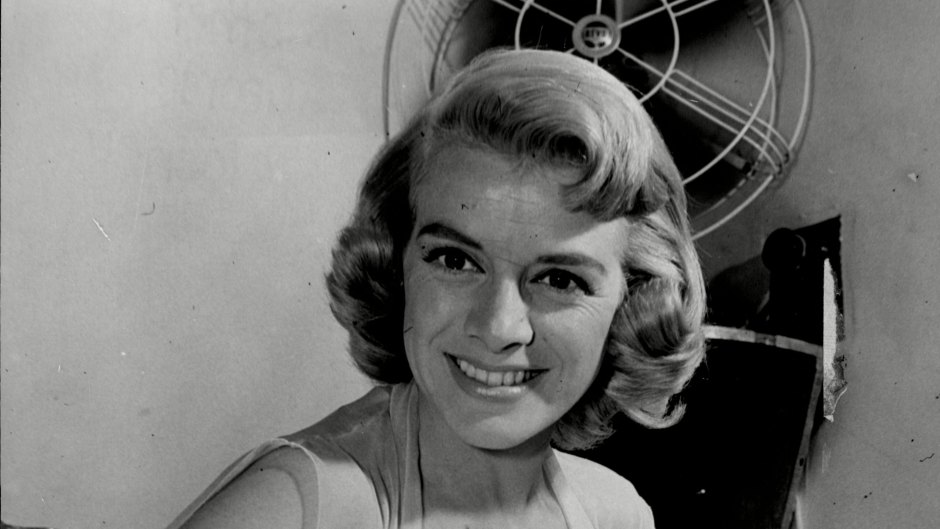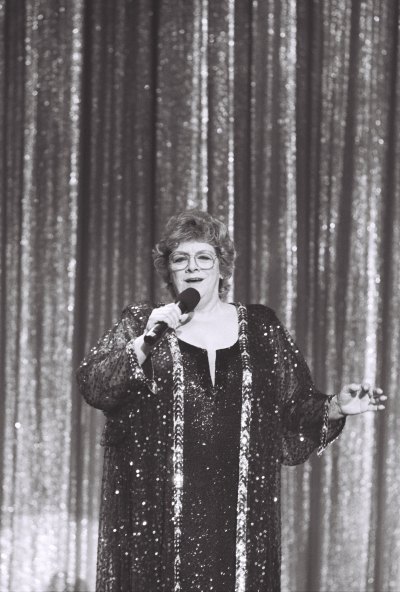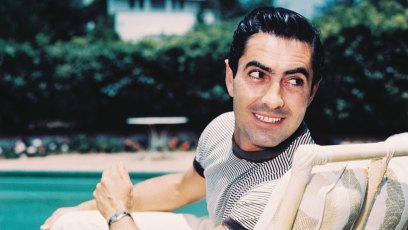
ANL/Shutterstock
Rosemary Clooney ‘Reinvented Herself’ After Facing Hardships: ‘A Tremendous Second Coming’
At a club date in Reno, Nevada, in mid-1968, Rosemary Clooney stunned her audience by raging incoherently over the microphone before storming off. Her band was left to play her popular song “Come On-a My House” to an empty stage. “Nobody could approach me. I was like a hand grenade with the pin pulled,” Rosemary recalled. Later that night, she drove all the way from Reno to Lake Tahoe in the wrong lane, daring oncoming traffic to take her life.
Less than 20 years earlier, the performer’s warm, expressive voice made her a recording star with hits including “Tenderly,” “Half as Much,” “Botch-a-Me” and “Mambo Italiano.” She starred in several movie musicals, including the beloved holiday staple White Christmas with Bing Crosby in 1954.
Changing tastes in music and Rosemary’s public meltdown — caused by the stress of showbiz, a bad marriage, alcohol and prescription drug abuse and the singer’s horrific proximity to Robert Kennedy’s assassination — would derail her career. Fortunately, it was only a prelude to the performer’s triumphant final act. “She showed if you had resilience and a strong natural gift, you could overcome some enormous obstacles,” says Ken Crossland, coauthor of Late Life Jazz: The Life and Career of Rosemary Clooney.
Kentucky-born Rosemary lost her younger brother Andy in a childhood swimming accident. She and her three surviving siblings were largely raised by their grandparents, due to their father’s alcoholism and their mother’s abandonment.

She began singing professionally with her sister, Betty, as a teen. Rosemary made her first solo recording in 1946, earning favorable comparisons to Ella Fitzgerald, and, before long, a contract with Columbia Records. In 1951, her record company mentor, Mitch Miller, compelled her to record “Come On-a My House” — a song Rosemary hated on first listen. “My first impression was, what a cheap way to get people’s attention,” she said of the tune based on an Armenian folk song that she performed with an Italian accent. “It was the only kind of accent I knew,” said Rosemary, who took the novelty song to No. 1.
The next few years would be a blur of recording studios, concert stages, film sets and married life. In 1953, Rosemary, then 25, wed José Ferrer, an actor 16 years her senior. The couple had five children in as many years, but the union was not a happy one. “He was a womanizer who treated Rosemary quite badly,” says Crossland.
By the 1960s, Rosemary was addicted to sleeping pills and alcohol, and her behavior became more erratic. She and José split, reunited and divorced for good in 1967. Two years later, as she was standing with her children waiting to greet presidential candidate Robert F. Kennedy, he was shot by Sirhan Sirhan. “That really tipped her over the edge,” says Crossland, who adds that “her grasp on reality left her about a month later in Reno.” She was eventually institutionalized. “I was a violent case in a violent ward,” said Rosemary, who underwent eight years of therapy.
In 1975, her friend and White Christmas costar, Bing, invited her to join his 50th-anniversary concert. Rosemary had been performing gigs at suburban Holiday Inns and suffered stage fright the first night. “Crosby said to her, ‘Just remember that they are on your side,’ ” says Crossland. “He watched from the wings as she performed, and her confidence came back.”
Rosemary would go on to make some of the finest recordings of her career. “For the remaining 27 years of her life, she reinvented herself as a jazz singer,” says Crossland. “She did nearly 20 albums over that period that are absolutely outstanding. It was a tremendous second coming.”
She found happiness in her personal life, too. In the 1970s, Rosemary was sitting in her convertible at a traffic light when dancer Dante DiPaolo pulled up beside her. The pair had dated in the 1950s but hadn’t seen each other in 20 years. He moved in with Rosemary a few months later, became her road manager and her husband. They remained together until Rosemary’s death in 2002 at age 74.
Rosemary’s nephew, George Clooney, who worked as her driver when he was a struggling actor, remembers his aunt with love and gratitude. “She taught me by example of the mistakes not to make because she made all of them,” he says. “She didn’t become less of a singer, but she became less of a star. You learn [that fame] has very little to do with you.”






































